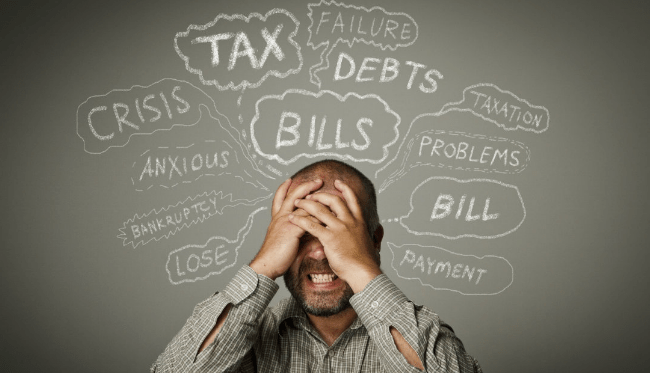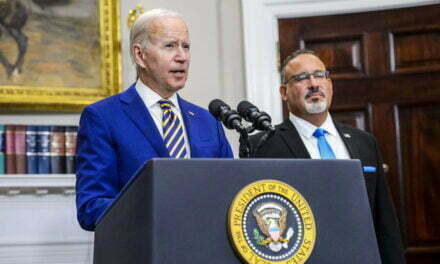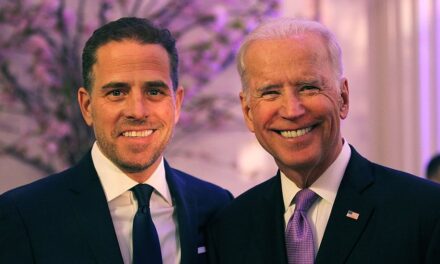
Harvard Report Finds Cash Handouts Harmful to Low-Income Recipients

A new study conducted by Harvard University and the University of Exeter suggests financial handouts such as Universal Basic Income (UBI) do more harm than good.
The study, which took place from July 2020 to May 2021, involved roughly 2,000 participants who received a one-time cash payment of $500 or $2,000. Participants earned an average of $950 per month and received an additional $530 from government benefits such as food stamps. More than half of participants were unemployed and 80% had children.
For the purposes of this article, we will refer to those receiving $500 as Group A and those receiving $2,000 as Group B.
Despite the extra cash, handout recipients in both groups reported the same rate of late-payment charges, overdraft fees, and cash advances when compared to a control group of 3,000 individuals that did not receive money. During the weeks following the handout, Groups A and B outspent the control group by an average of $26 per day and $82 per day, respectively.
Over the next 15 weeks, handout recipients reported:
- Increased financial stress
- Decreased work performance and job satisfaction
- Less earned income ad liquidity
- Reduced job satisfaction
- Worse sleep and physical health
- More anxiety and loneliness
There was virtually no difference in results between Groups A and B, but a marked difference when compared to the control group. It’s possible that handout participants became even more stressed when they received free money but still couldn’t afford what they wanted, notes Allysia Finley, a member of the Wall Street Journal’s editorial board.
“More plausible, the payments made work less rewarding, which reduced feelings of personal well-being. Cash recipients reported less earned income and felt worse about their work. It’s no surprise that people who received a large percentage of their monthly income for doing nothing were less motivated to work and less satisfied with their work. Earning a paycheck can give workers a sense of personal agency that encourages them to make better financial and health decisions. Receiving a handout may do the opposite.”
Though similar results have been observed almost every time a UBI experiment is conducted, Democrats seem to think that any problem can be solved with money. Liberals often argue that unconditional handouts prompt low-income individuals to make better financial decisions and lead healthier lifestyles.
Firm believers in UBI include 2020 presidential candidate Andrew Yang, who promised $1,000 a month for all Americans over the age of 18, and journalist Brianna Provenzano, who believes cash handouts can “infuse a sense of pride back into an American workforce that has been stripped of its dignity over the years.” Provenzano also claims that people inherently enjoy working because “they derive so much of their social value from it.”
The theory here is that low-income folks will be more focused on the future if they don’t have to worry about making ends meet. Unfortunately this is simply not how people behave.
Just look at the sharp increase in inflation and unemployment following the federal government’s generosity during the pandemic. In my personal life, I am acquainted with far too many people who still haven’t returned to work after being laid off during the pandemic because they are living on the government’s dime.
As my colleague Joe Gilberston likes to say, “Whatever you subsidize, you get more of.” If we give Americans free money, they will lose the incentive to work and spend money they do not have.
Sources:
























Is this the same Harvard University that got caught taking 9 million for their endowment fund from the CARES Act Funds (which subsequently caused small struggling businesses being denied CARES Act funds) when their endowment fund was already valued at 40.9 billion? And then when caught they say they will give back the funds by using them for student financial aid to their overpriced college!? Between their greed and liberalism, how can anyone consider anything that comes from Harvard? Oh by the way, it would be better for you not to publish your buddy buddy bros with Joe Gilberston – his blogs are often rather stupid and far right leaning. Oh and if you do wish to reference him, it would probably be good for your friendship to learn how to spell his name!!! GilberTSon. Got it? 🙂
I read a report the other day we are journalist who are given free stories that they can copy/paste lose all incentive to find the truth. Overtime, they are more than willing to print complete bullshit without even batting and I, much less looking up additional sources. It turns out that when you subsidize journalist with three information, the pile just keeps getting bigger
I think this is also true of commenters who use speech-to-text and don’t check their work carefully. 😃.
I have to admit I’m one of those speech to text because I can’t hold the stupid tablet and type at the same time cuz I just got the one hand working. Although I usually try to read before I hit the send button. But even then sometimes you hit that send or post and spell check right at the last minute changes a bunch of words. Personally I despise texting as a way of communicating. In a format like this I understand it I’m talking about people that hold long conversations instead of just dialing the phone. That kind of texting communication is right up there with people saying they’re in a committed online relationship. As for subsidy handout in the case of the pandemic that they paid to create and used against us. They needed to give some income help because most of the people that were out of work were from the direct actions of these politicians. Where they messed up is when they started handing it out like welfare does every single month. When it started to be a steady stream to a lot of people that’s when I started seeing people losing interest in going back to work. And the excuse I heard the most of why they didn’t want to go back to a job especially in fast food was that it doesn’t pay enough but when they’re asked well how much do you expect it to pay the amounts they put down was the pay scale for like the managers or the CEOs and they expected to get that for flipping the burgers. It just created more entitled thinking people. If any of y’all ever see one of my speech to text and it happens to get messed up blanket apology LOL I do my best to try to prevent it though because it annoys me too. Y’all have a great night
My heart wants to believe what Alice has concluded and that free money is a bad thing for everyone, it’s always good to have work associated.
In the great depression, many people would not take free money from the government basically because of culture. They would rather starve. They thought only people of low birth would take free money. Thus, the government created those jobs where five people leaned on the shovel, and one dug, and even jobs where you could work at home putting stamps on envelopes. They found that, based on the culture, people accepted money with work, even made up jobs. .
Fast forward a couple decades and after World War II my decorated father was offered disability pay which he turned down saying, “the other boys need it more.“ Fast forward another couple of decades and as I hear the story, I say “bwhhhhaaaattt, are you crazy ?” The culture has changed. And I considered social programs like unemployment a right. Right because after paying in for so long, it’s only right to get some back when needed. The culture had changed starting perhaps with The New Deal. .
So, I want to believe Alice, I do think it would be better to associate work with money all around, but unfortunately, once again, Alice has not looked beyond the blogosphere and the report does not conclude what she says it does. At least according to the authors themselves. .
If Alice had actually looked at the report and any of the reviews, she would’ve noted that the study was done in 2020 during the pandemic. As in these people were getting full stimulus too so it was much more free money than just the study money. Unfortunately, that alone would make the study skewed. Additionally, there was a high rate of attrition in subjects responding. This would mean that the results would be skewed especially if all the missing respondents had the exact opposite answers as the ones who remain in the study.
The authors mentioned all of this as well as contradicting many claims that Alice has mentioned. They did so specifically to these claims so that their study would not be misconstrued just as Alice has done.
These could be really good stories Alice if you would just Google the subject and see if there might be alternate views, reviews, and even fact checking. Four or five extra clicks in a little reading and I think these will be top-notch stories